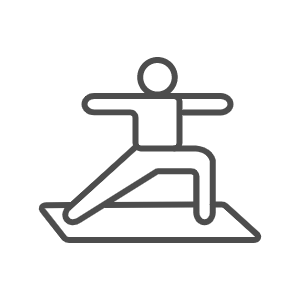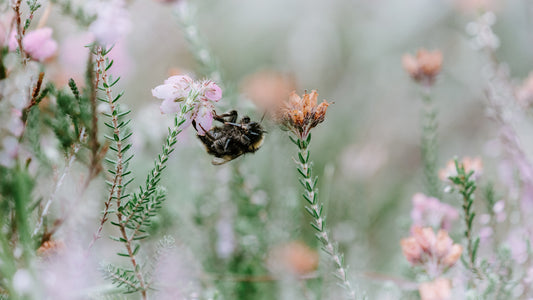
NEW In!
PURE-Matte Light TaupeShopping cart
Your shopping basket is empty
Yoga

Meditation
Sets & Bundles
Time for more mindfulness! Today we will introduce you to a very special meditation technique for dealing with stress: M indfulness Based Stress R eduction (MBSR).

Flexible opening hours, constant accessibility via all channels, technical progress as far as the eye can see: life has become easier for those in a hurry today. But is it also more relaxed? More and more is packed into a day, life is becoming more complicated and hectic. But there is a counter trend: Mindfulness !
"Anything worth doing is worth doing in peace." Mae West (1893-1980)
It's a mix of different factors that make people see themselves as mindful more than ever. This is also confirmed by MBSR expert Otto Raich: "The mental overload caused by the constant input of information, constant availability through the new media and the development of our meritocracy are some of the reasons why people long for more mindfulness in everyday life".
Sounds reasonable. Wherever you look, people feel rushed, looking at their smartphone, always looking for "more", although everything is already there? According to Otto Raich, this is another reason: "If someone has everything on the outside - a second car, a third television set and multiple vacation trips a year - they will eventually realize that happiness cannot be found on the outside. In our affluent society, more and more people are coming to this conclusion. Mindfulness can be a way to regain sovereignty over your mind, to come back to yourself.”
Igor Stravinsky also knew: "I don't have time to hurry." Because rushing to gain time usually has the opposite effect. With more mindfulness in everyday life, you suddenly have all the time in the world. You get back in touch with your individual rhythm, can cope better with stress and are more relaxed in the long term.
One way to learn mindfulness is MBSR. The founder dr. Jon Kabat-Zinn developed this stress management program at the University of Massachusetts Medical School in 1979. The former molecular biologist and university professor himself has many years of experience with Buddhist meditation - first as a Zen student and later in the Vipassana tradition. Today, his MBSR program is world-renowned.
Jon Kabat-Zinn consistently emphasizes that mindfulness can be cultivated through meditation, but it has nothing to do with sitting in the full lotus position for hours and pretending to be a breathing statue. It's about living worth living. Moment to moment to moment… going through life with wide open eyes and a little slower steps.
But how do you learn mindfulness? Mindfulness is attention. And attention is an attitude that can be developed. As described by Kabat-Zinn, meditation is helpful. The following qualities should be trained during meditation:
The classic MBSR program lasts 8 weeks and includes various techniques to become more relaxed and stress-resistant. Weekly 2 ½ hour group sessions and a full day silent retreat around the 6th week are planned. “Each meeting has a topic that can be experienced through exercises. A keynote speech helps to understand cognitively and joint reflections deepen the experiences made,” explains Otto Raich, who has been working in the field of meditation and yoga for 25 years. The topics in the MBSR program range from "perception vs. interpretation" to "dealing with stress-increasing thoughts or difficult feelings". Between meetings there are daily exercises to do at home.
Three types of exercises form the core of the MBSR program:
Many clinical studies have proven the effect of this meditation technique. After just 8 weeks, the body's defenses increase, the head clears and positive feelings dominate everyday life, while stress and negative thoughts increasingly take a break. Otto Raich also confirms this: “On the last evening of the course, I ask my course participants what has changed in the last eight weeks. I'm always happy with the answers. From the lost sensitivity to the ability to remain calm in difficult situations, most participants do not want to miss their daily practice anymore.”
Regular practice also has positive effects on our brain. The density of gray matter in the brain, i.e. the regions responsible for learning, memory, emotion regulation and empathy, increases. Even in hospitals, schools and prisons, MBSR is already being used worldwide.
Interested in testing MBSR? Here you will find a small MSBR meditation with an introduction by Otto Raich to get a taste of.
Other interesting links on the subject of MBSR:

Just close your eyes and take a deep breath! Well, did you perhaps just become aware of your breathing for the first time today? Most of the time, ...
Continue reading
In this article you will find out what pratyahara has to do with bees and turtles and why it is worth restraining your senses! Pratyahara is the fi...
Continue reading